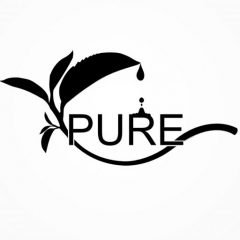Healthy options gives choices to maintain, regain or optimize for your well being.
What is holistic?
ho’-lis-tik :: relating to or concerned with whole or with complete systems rather than with the analysis of, treatment of, or dissection into parts – holistic medicine attempts to treat both the mind and the body.
A holistic healing is a journey.. and is really a lifestyle approach that goes far beyond the basic physical aspects of your health. It is balancing a person’s life physically, health, emotional and spiritually. Holistic healing is intended not to be a band-aide on your life or a one time fix. Nor does it replace western medicine; but an on going journey of living better, being healthier and striving for wholeness.
True, our pains and other physical discomforts demand our attention but many times are secondary conditions and not the primary root of our problems. For example, a headache is a symptoms of a greater imbalance that may or many not have a physical root but could be a nutrition or emotional one. A person that embraces the desire to find wholeness soon learns the importance and the impact it brings to ones overall life.
You will learn to connect with your inner peace to maintain stability. We all want and need to sharpen our mind, reduce levels of stress within the home, workplace and in daily community living. Reduced pain and suffering will calm emotions and soothe nerves leading each individual to a deeper form of consciousness.
TIP FOR STAYING HEALTHY
The common health problems should it be physical or physiological can be simply symptoms of imbalances and often it takes nothing more than good living practices to remedy them. But first and foremost you must want to make the change but once you make the change, and this takes just around 10 days for one to make habit changes, you create new and healthier new habits/routine.
“You are what you eat.” How many times we heard that growing up. There is no perfect diet for everyone, so it is important to watch and pay attention to how your body reacts to foods. How does it make you feel once you eat it and then hours after you eat food. Your body will tell you what is good for you and what is not. Then watch your intake. Do not over eat. Eat smaller portion and more often. Eat in moderation. Eat organic whenever possible and seasonal foods and avoid processed and the over consumption of sweets and carbohydrates. Alkalize the body with dark leafy vegetables, steamed grains, high proteins (fish, poultry, lean beef) and sour fruits such as lemons, limes, grapefruits and sour cherries.
ORGANIC verse NATURAL
The word “organic” refers to the way farmers grow and process agricultural products, such as fruits, vegetables, grains, dairy products and meat. Organic farming practices are designed to encourage soil and water conservation and reduce pollution. Farmers who grow organic produce and meat don’t use conventional methods to fertilize, control weeds or prevent livestock disease.
The USDA has strict certification program guidelines even for a farm to be considered organic. Organic food is even now has become a regular feature in most supermarkets where once upon a time was only seasonal at your local farmers market. Organic lends to providing more vitamins and fiber, lower or fat free, sodium, cholesterol and hormone/chemical drug free.
Ok, now let’s talk about “natural”. Organic and natures are not interchangeable terms. Terms like “all natural”, “free range”, “hormone free” describe foods that are grown and process but not under the certification guidelines that are grown and processed according to USDA organic standards so they cannot be labeled as organic. But realistically, “natural” has better nutrition value then bio-engineered products.

